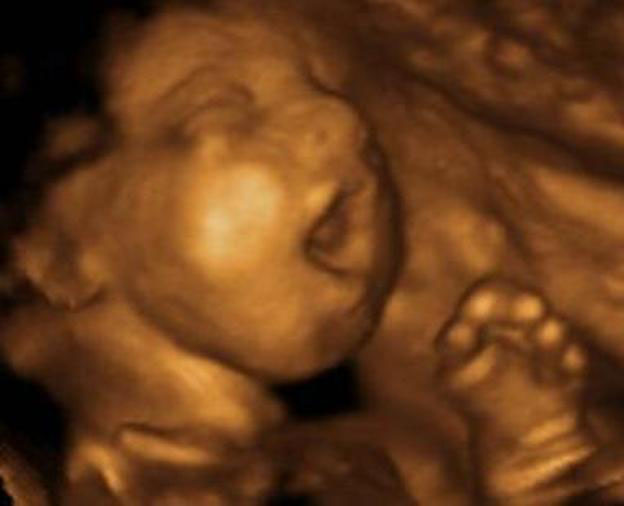Another unborn baby with disabilities may be aborted in India after a high court granted the baby’s mother an exception to the country’s late-term abortion ban this week.
On Dec. 26, the woman, Shaikh Ayesha Khatoon, told the Bombay High Court that her unborn baby has heart, brain and gastrointestinal anomalies, and she wants an abortion, The Hindu reports. She was 27 weeks and four days pregnant on that date, far past the point of viability, according to the report.
The court granted her request Tuesday, arguing that giving birth to a child with disabilities would cause mental trauma for the woman, the Times of India reports. Based on a medical panel’s assessment, the court also said the late-term abortion would not pose a greater risk to the woman’s health than natural labor.
Abortions are illegal after 20 weeks of pregnancy in India. However, women or their families increasingly have been petitioning the high court for permission to abort their unborn babies after the limit, especially in cases involving fetal abnormalities or sexual assault. At 20 weeks, an unborn baby already is fully formed and close to the point of viability (about 22-23 weeks). Later-term abortions also are risky and can be deadly for the mother.
The Times describes why the Tuesday ruling could be a landmark case for further expansion of abortion in India:
The HC had asked the woman’s lawyer Meenaz Kakalia to demonstrate if there was any threat to the mother’s life and she had responded by saying that mental trauma must be considered as part of risk to her health and life.
The bench appeared to agree with her as it referred to past pronouncements on women’s right to bodily integrity and applying principle of purposive interpretation of law, held that foetal malformations, their severity and the effect on women’s mental and physical health must be read into Section 5 of the Medical Termination of Pregnancy Act that governs reproductive procedures in the country and lays down restrictions. The Section 5 carves out exception in cases where continuation of pregnancies pose a grave risk to the life of the woman and doctors’ certify ‘in good faith’ that only a termination can save her life.
Click here to sign up for pro-life news alerts from LifeNews.com
In the fall, the Supreme Court of India also granted an exception for a woman whose unborn baby had potentially fatal kidney problems. She was 31 weeks pregnant.
In August, the high court gave another Mumbai-area woman permission to abort her unborn baby at 26 weeks after doctors said the baby had a potentially fatal disorder. Doctors at J.J. Hospital who examined the woman and her unborn baby said the baby did not have a skull and probably would not survive, according to the Indian Express. The doctors also said the woman was experiencing “immense mental agony.”
However, in early 2017, the high court did uphold the right to life for an unborn baby diagnosed with Down syndrome. The mother was 26 weeks pregnant when she requested the abortion.
“It is sad that the child may suffer from physical and mental challenges and it’s unfortunate for the mother but we can’t allow an abortion…We have a life in our hands,” the court said in its February 2017 ruling.
Most countries prohibit late-term abortions on viable, unborn babies. The United States and Canada are among the few exceptions.








